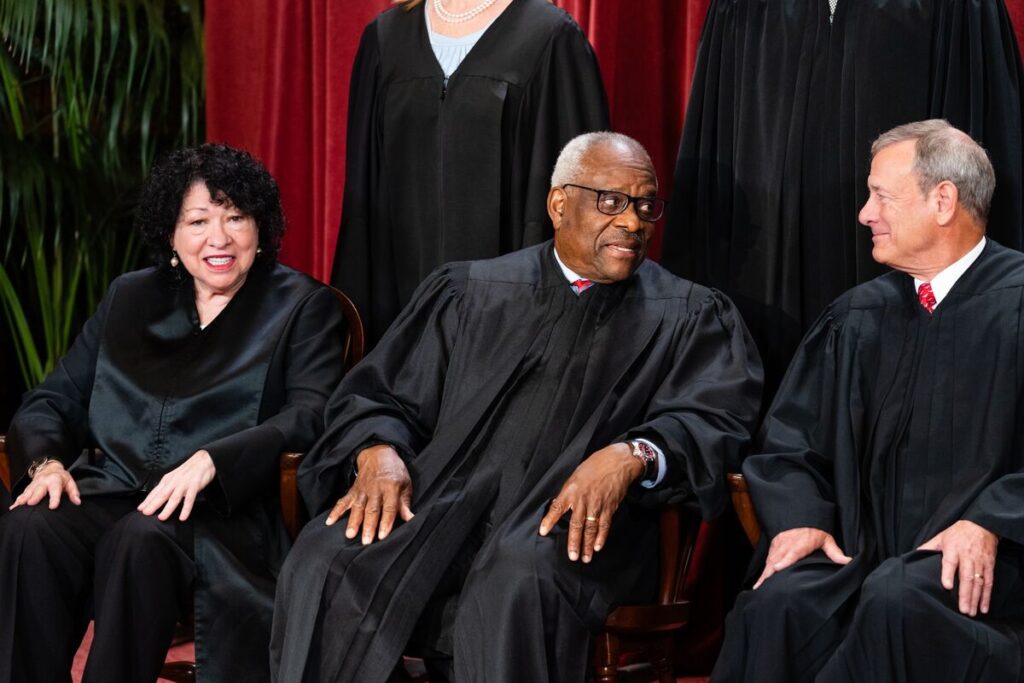The U.S. Supreme Court released a significant decision on gun rights on Friday, prompting court observers to contemplate how the now conservative-majority body plans to address challenges to the 2nd Amendment.
In an 8-1 decision, the Supreme Court ruled that individuals convicted under domestic violence restraining orders (DVRO) are not entitled to possess firearms following a challenge by gun rights activists against a federal law that provided for the restriction. Chief Justice John Roberts, writing for the majority, stated, “[W]e conclude only this: An individual found by a court to pose a credible threat to the physical safety of another may be temporarily disarmed consistent with the Second Amendment,” Fox News reported.
In November, the court heard oral arguments in a case where the Biden administration sought to defend the law from a challenge by Zackey Rahimi, a Texas man under a Domestic Violence Restraining Order (DVRO) who argued he was entitled to keep his firearms for self-defense after they were confiscated following a 2019 physical confrontation with his ex-girlfriend. The court’s ruling in U.S. v. Rahimi could have major implications not only for gun ownership but also for the presidential election.
Earlier this month, Hunter Biden was convicted on three federal charges for lying about being an active drug user when purchasing a handgun in 2018. A Delaware court unequivocally found President Joe Biden’s son guilty, heavily relying on his own admissions about drug use in a 2021 autobiography. Hunter Biden’s legal team is preparing to appeal the conviction, which could result in significant prison time. They are expected to argue that federal laws unjustly deny drug users the right to carry firearms for self-defense. But legal experts say what’s really at issue is the fact that Hunter lied on a federal gun background form.
During the hearing, both conservative and liberal justices seemed to agree that historically, the government has placed limits on firearms ownership if courts and law enforcement can reasonably deem an individual to present a public danger. Originalists have framed their skepticism as judicial activism that doesn’t give enough credit to the wide latitude for gun ownership granted under the 2nd Amendment.
“It’s so obvious that people who have guns pose a great danger to others, and you don’t give guns to people who have the kind of history of domestic violence that your client has or to the mentally ill,” Justice Elena Kagan told the lawyer for the Texas defendant during oral arguments, Fox reported. “I’m asking you to clarify your argument because you seem to be running away from it because you can’t stand what the consequences of it are.”
In response, Chief Roberts encouraged his colleagues to refrain from judicial overreach. He cautioned that disarming individuals labeled as “irresponsible” could create a dangerous situation where people’s access to firearms could be determined by the subjective opinions of lower-level officials, leading to potential misuse of power. “It seems to me that the problem with ‘responsibility’ is that it’s extremely broad, and what seems irresponsible to some people might seem like, well, that’s not a big deal to others,” he wrote.



